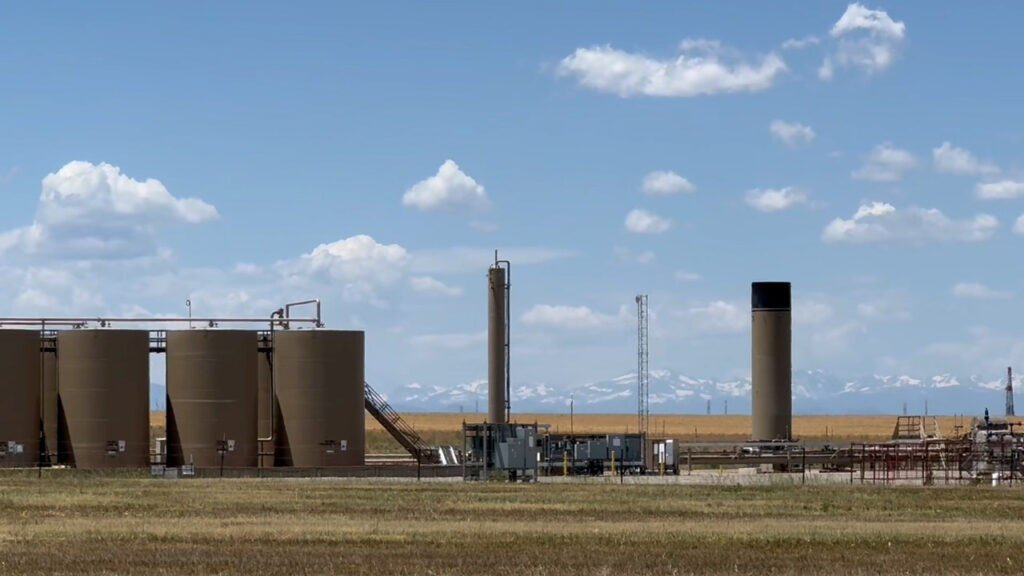AURORA, Colo. (KDVR) — On Saturday, environmental groups in Colorado offered local residents the opportunity to visit various oil and gas hydraulic fracturing sites and view them through cameras equipped with optical gas imaging technology.
“We’re experiencing the impacts firsthand,” said Bobby Mooney, Beyond Oil and Gas coordinator for 350 Colorado, “seeing it through our cameras and learning from experts in the field.”
University of Colorado Boulder astrophysics professor shares tips for enjoying Colorado’s Dark Sky Month
From the outside, the camera looks like an ordinary video camera, but Andrew Kloster, Earthworks’ Colorado field activist, said it can detect organic volatile compounds that are invisible to the naked eye.
“This is technology designed to allow industry to quickly survey their facilities, identify issues that are going on, such as methane or volatile compound emissions, and then fix those issues,” Kloster said.
He said Earthworks purchased the cameras in 2014 to hold these companies accountable.
“We do these tours and use our cameras to give people a first-hand experience to raise awareness about the ongoing emissions from the oil and gas industry and allow people to ask questions and join the conversation,” Kloster said.
While the video looks convincing, Rich Coolidge, public relations manager for Civitas Resources, which owns some of the oil and gas sites in Aurora, said it’s best to take it with a pinch of salt.
“OGI can also pick up heat signatures so it’s not conclusive evidence. For our part, we have air monitors at all of our aurora observation sites,” Coolidge said in an email to FOX31.
He added that Civitas is in compliance with Arapahoe County’s new regulations, adopted last November, which are “the strictest and most protective oil and gas regulations in the state.”
It will be a fierce battle in the next legislative session as these grassroots groups work to put a bipartisan bill on the ballot.
Denver trauma counselor returns from second volunteer trip to Ukraine
“We want to see emissions reduced and a managed decline in the industry to protect the health and safety of Coloradans who are on the front lines of this destructive industry and the pollution it produces,” Mooney said.
Meanwhile, Civitas said in a statement to FOX31, “We are constantly exploring opportunities to recycle and reuse produced water and remain committed to finding solutions that work for the unique challenges of our state’s geology.”

